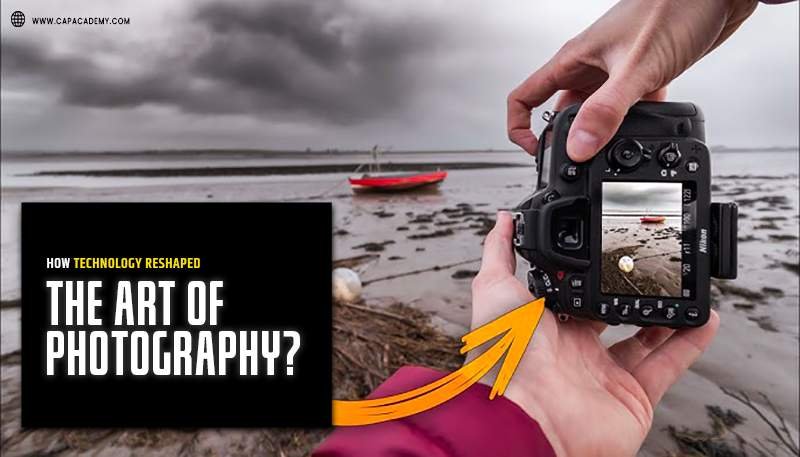Introduction:
Photography is the beautiful art that help in capturing the moments in time. The method of capturing photos has drastically change throughout the years. Advanced photography courses in Kolkata are very much in demand because of the tremendous development of technology. The basic techniques have changed from the early days of the pinhole camera to the current digital age that has transformed photography into an art. The digital evolution has changed not only how images are taken but also the way in which photographers view and approach their subjects.
The Evolution of Cameras:
The shift from film to digital cameras marked a turning point in the world of photography. Digital cameras really revolutionized the working style of a photographer, storing thousands of images and providing instant feedback. The next innovative development included mirrorless cameras, which further brought about new breakthroughs in their lightweight versions, impressive fast autofocus capabilities, high-resolution sensors, and better image stabilization.
Editing Software: Extending Creativity
One of the most profound impacts of technology in photography is through advanced editing software. Programs like Adobe Photoshop and Lightroom have given photographers tools to manipulate images in ways previously unimaginable. The resources provide minute adjustments to exposure, color balance, and composition, which can transform any ordinary shot into an extraordinary piece of art. Photography courses in Kolkata now use these software tools to a great extent so as to make their students Alice-cable in both the capturing and editing of images.
The Role of Smartphones:
The proliferation of smartphones with good cameras has democratized photography. Everyone carries a potential tool for taking great images in their pocket. Computational photography, where algorithms enhance image quality, can help amateur photographers produce professional-grade photos. Access of this nature has increased the audience for photography and has attracted more people to dabble in the art form.
Social Media and Online Platforms:
Social media, from Instagram and Pinterest to Flickr, have changed the face of sharing among photographers. With the instant access this provides to the rest of the world, a photographer can share their portfolio and garner feedback while building up a following. The online photography communities and forums build into large channels of learning, collaboration, and sharing tips, tutorials, and photo critiques.
Drones and Aerial Photography:
Drones added a different dimension to photography, in which one can take breathtaking aerial shots previously possible only through helicopters or planes. It has opened a new avenue of creativity for photographers to capture unique views of scenes and dramatic landscapes from a wholly new perspective. The better the technology of the drones, the more easily accessible and finer the quality of aerial photography becomes.
Artificial Intelligence in Photography:
The other frontier in the technological transformation of photography is artificial intelligence. AI-powered cameras can, on their own, detect scenes and subjects, automatically changing settings to optimize image quality. Also in post-processing are AI tools that enable one to delete, add details, or even colorize black-and-white photos. This is a fast-evolving technology that will no doubt yield more innovative features in times to come.
Conclusion:
In conclusion, we would like to explain that technology has had a very great impact on raising the journey of photography from analog to digital. Our modern generation has adapted different technology and software that resulting in giving most high quality image. Coming to next, the technology also evolved in smartphone that revolutionized this art. While photographers continue to adapt to changes, they find ways to express their creativity and even stretch the boundaries of this art further. One will need to be a part of it, or rather learn to master the art, to learn fashion photography in Kolkata. The future of photography is bright, with limitless possibilities yet to be explored.











